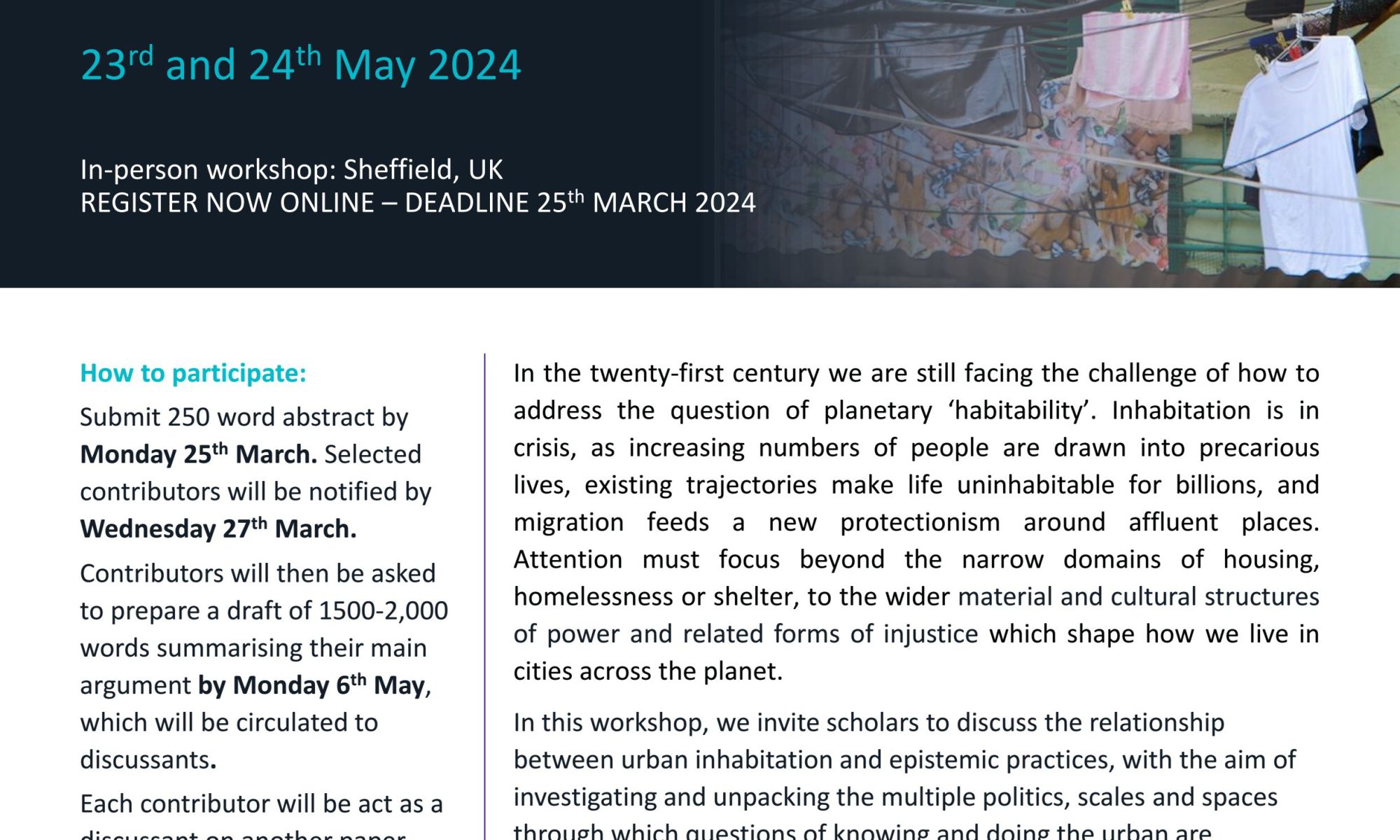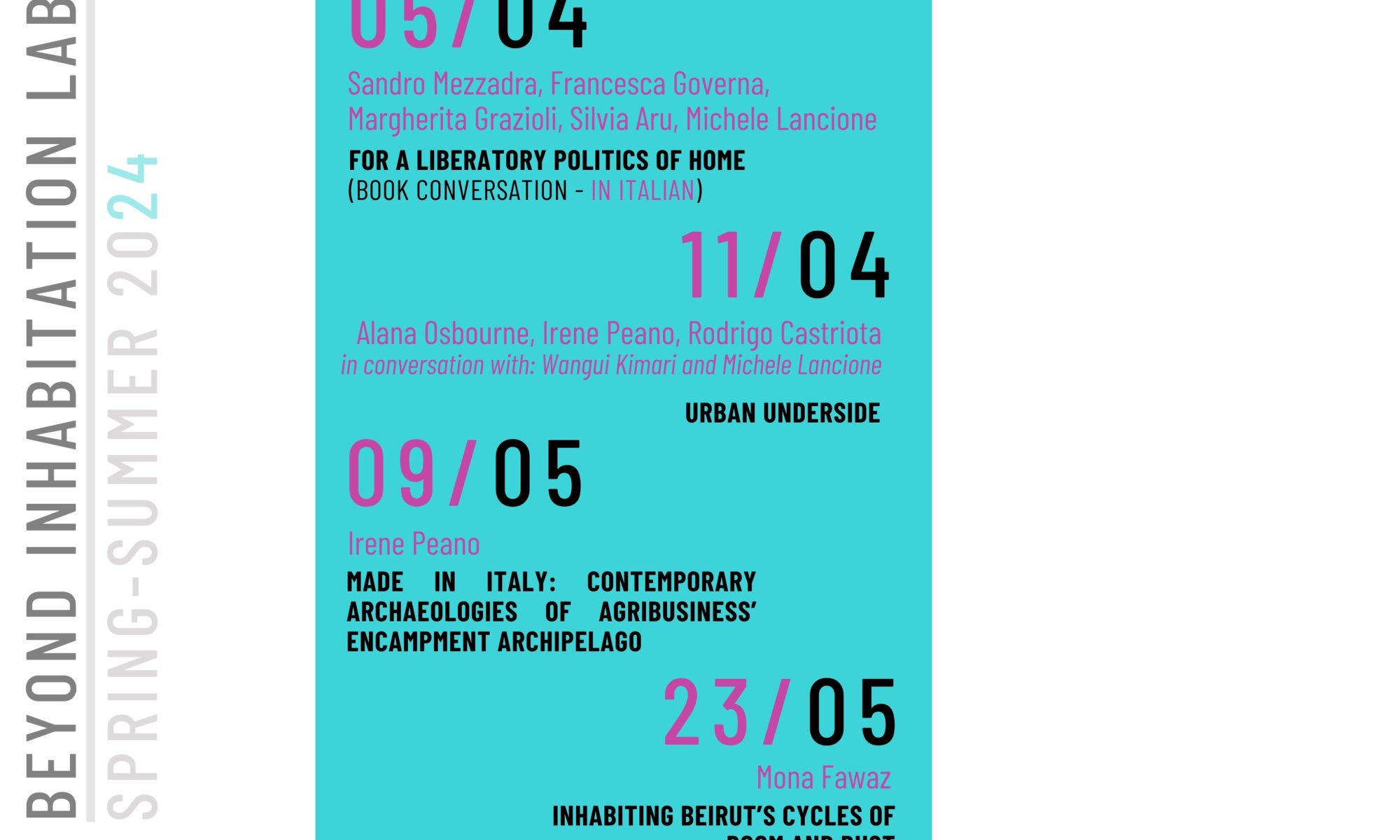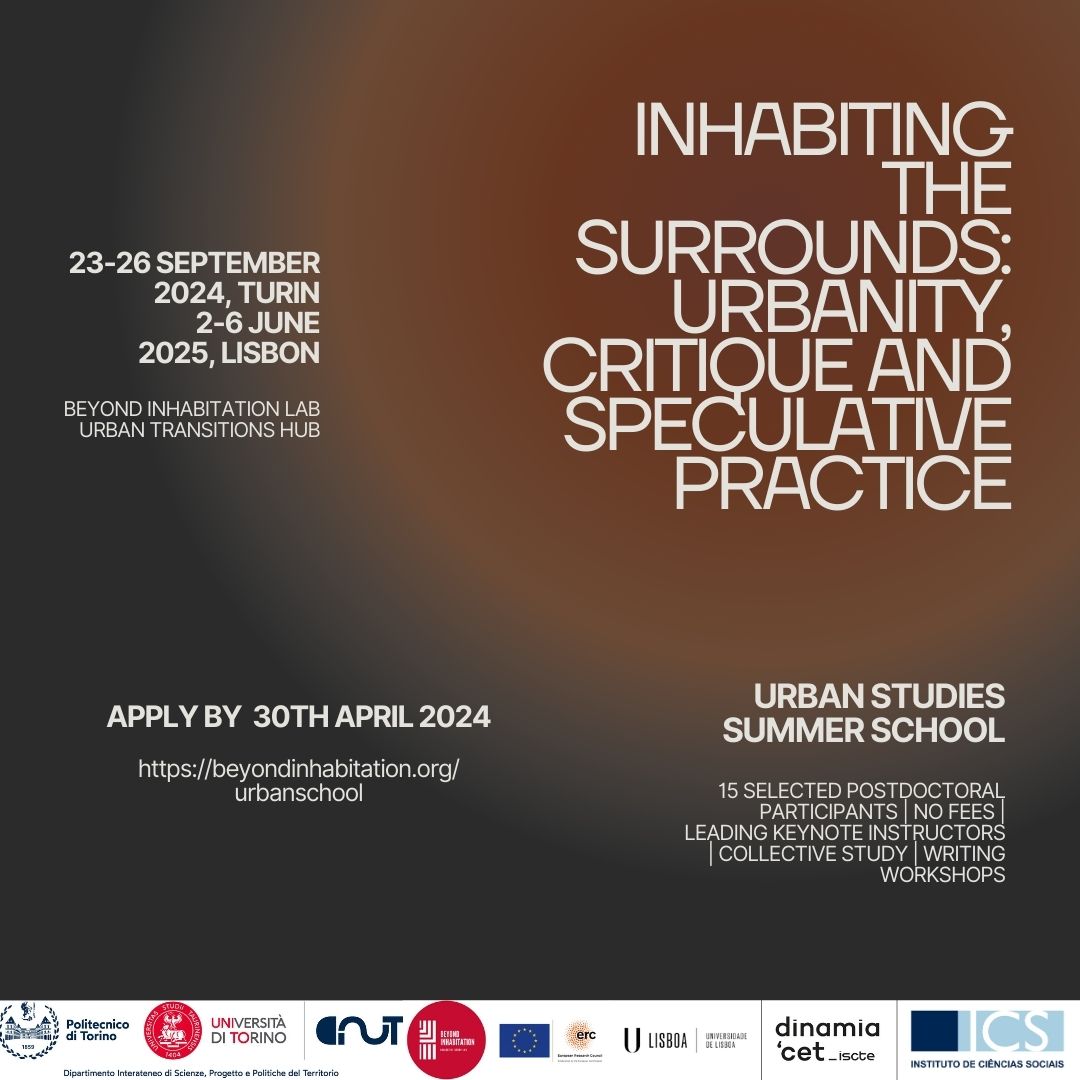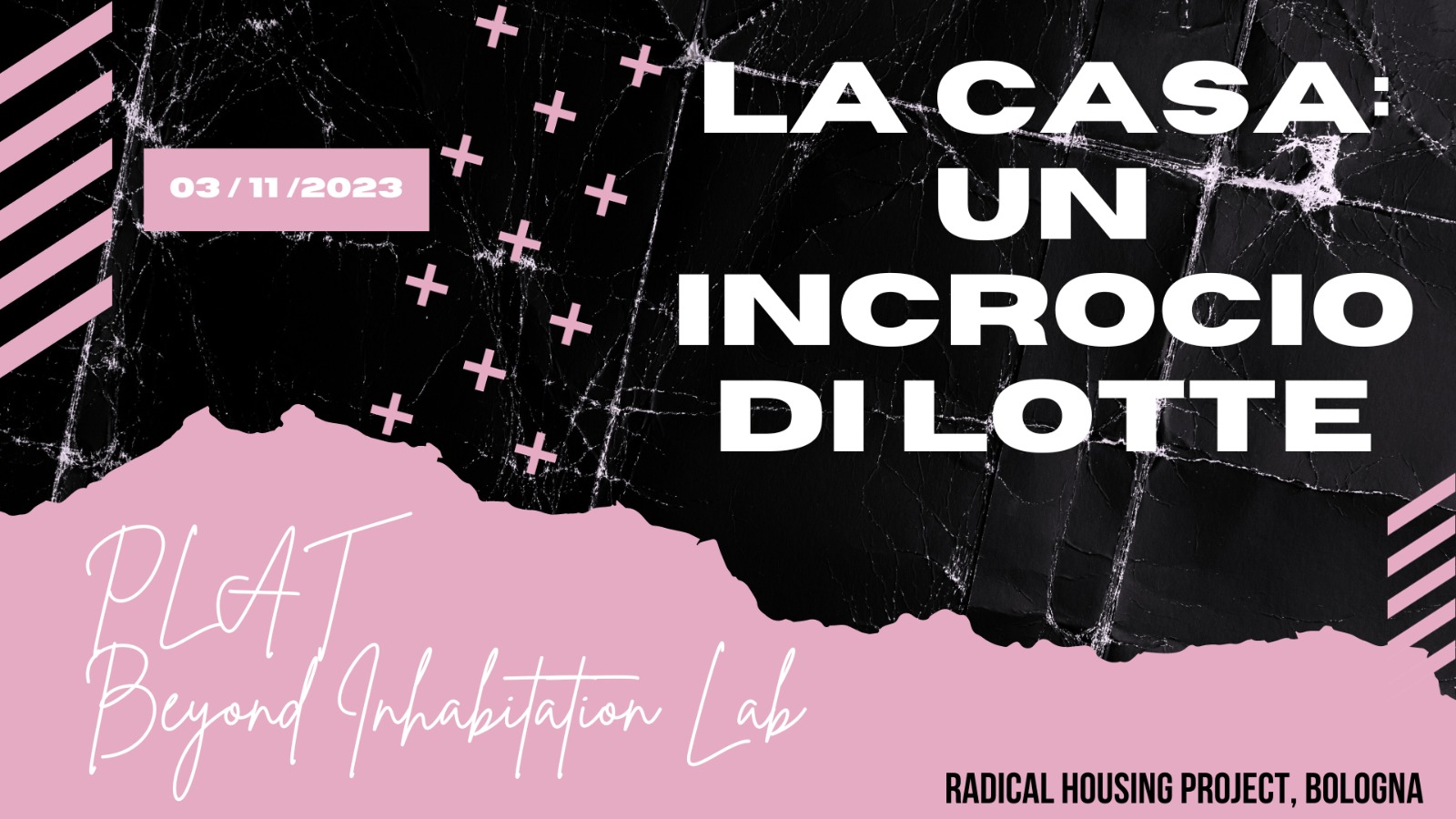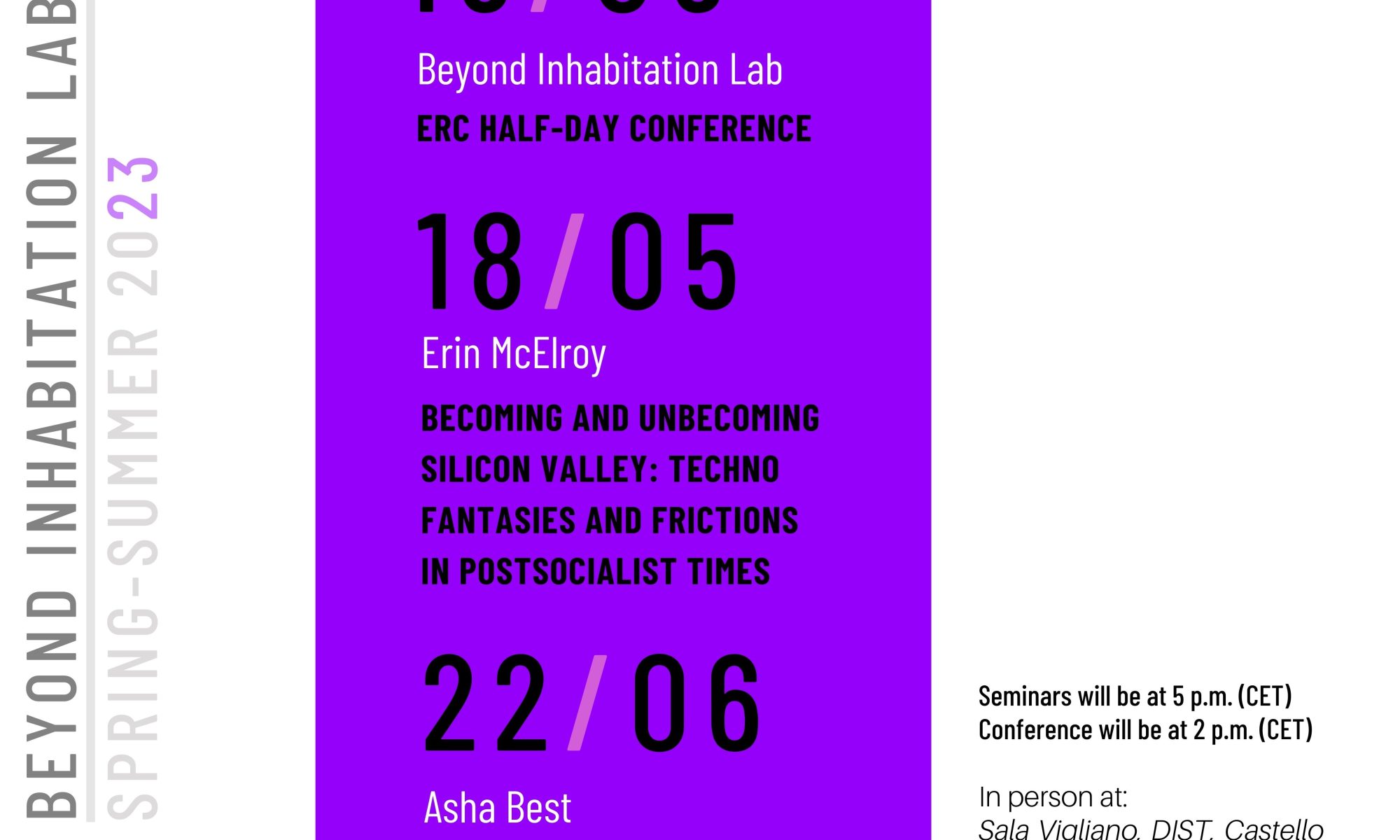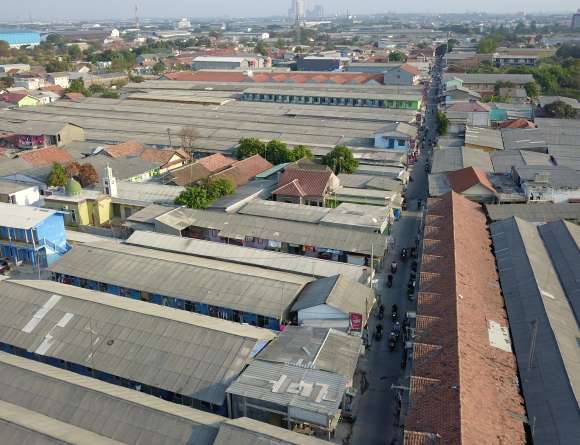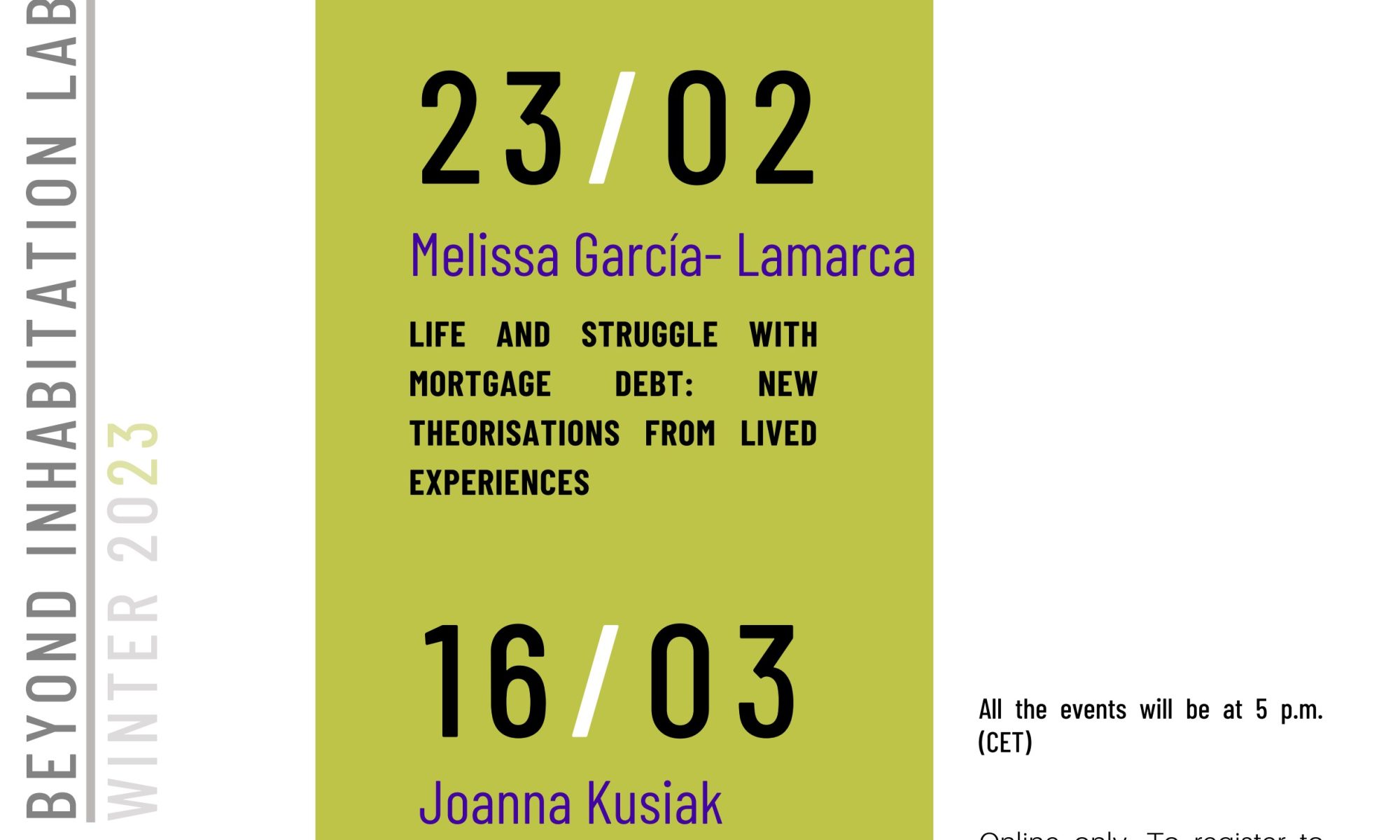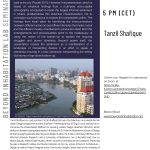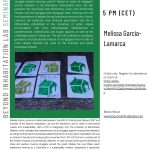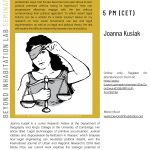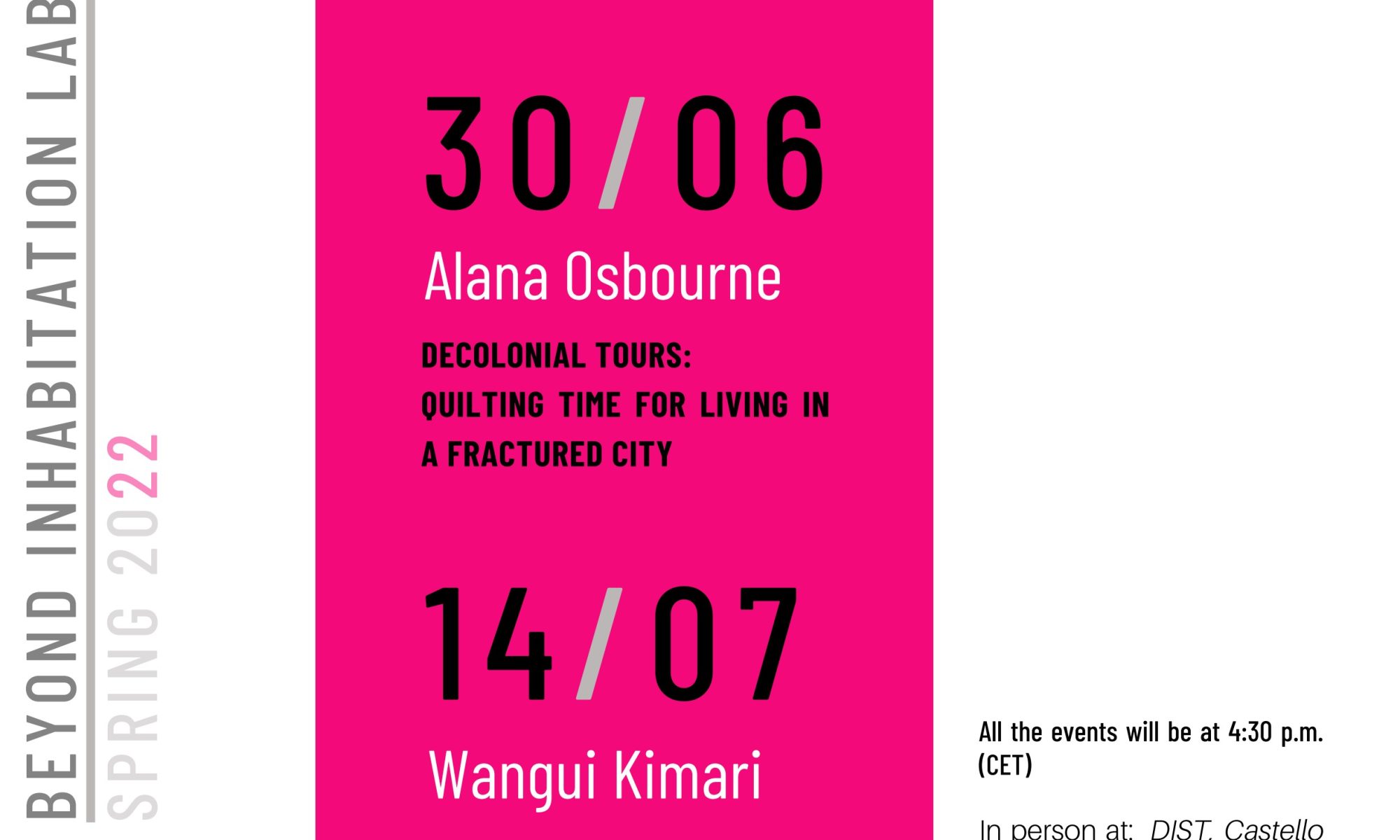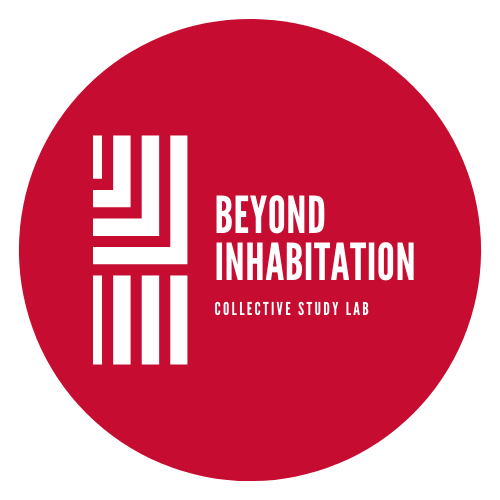Applications now welcome to participate in a workshop on 23-24 May 2024 ‘The epistemic tangles of urban inhabitation’ organised jointly by the Urban Institute (University of Sheffield) and Beyond Inhabitation Lab (Polytechnic University of Turin).
Deadline for submission March 25th 2024.
Apply here to present or attend the workshop.
In the twenty-first century we are still facing the challenge of how to address the question of planetary ‘habitability’. Inhabitation is in crisis, as increasing numbers of people are drawn into precarious lives, existing trajectories make life uninhabitable for billions, and migration feeds a new protectionism around affluent places. Attention must focus beyond the narrow domains of housing, homelessness or shelter, to the wider material and cultural structures of power and related forms of injustice which shape how we live in cities across the planet.
In this workshop, Beth Perry (Urban Institute) and Michele Lancione (Beyond Inhabitation Lab) invite scholars to discuss the relationship between urban inhabitation and epistemic practices, with the aim of investigating and unpacking the multiple politics, scales and spaces through which questions of knowing and doing the urban are produced and challenged across place and time. To start with, we are working with following basic definitions:
- Urban inhabitation: the ways in which human (and non-humans) manage to make lives worth living in different urban contexts around the world;
- Epistemic practice: the ways in which forms of data, knowledge and expertise shape the politics, policies and practices of urban inhabitation.
Understanding diverse ways of inhabiting the urban requires different ways of knowing the urban. Whilst scholars often emphasise the unknowability of the urban, and hence how we inhabit it in so many different ways, epistemic practices perpetuate which strive for sufficient certainty as a precursor for action. Critical scholars may inadvertently bolster hegemonic knowledge practices, as a refusal to settle on knowing anything enables certain forms of knowledge and expertise to be dismissed whilst others are heralded as legitimate.
Clearly, epistemic practice and urban inhabitation are not separated in everyday life. The distinction we propose here is therefore only analytical: it allows us to invite a focus on the epistemic tangles where struggles for more just city life emerge and unfold. We believe a specific focus on these practices is critical to shape wider understanding of the urban political – from global policy to grassroots action – where questions of epistemology and inhabitation are fused together and require more precise and direct questioning. Whilst such issues are often confined to the realm of policy (for instance, through ideas of evidence-based policy), we are interested in exploring the often mundane geographies where ways of knowing become crucial to tackle unjust ways of inhabiting, and vice versa – where counter-inhabitation practices may even ground questions around who we are and what it means to be human.
The focus of the workshop is therefore on the tangles between ways of inhabiting and ways of knowing the urban. The primary goal is to convene a space for dialogue and discussion leading to a special issue of a journal (for instance, South Atlantic Quarterly, Environment and Planning D or International Journal of Urban and Regional Research). However, please note, an invitation to present at the workshop cannot guarantee inclusion in the special issue and we are also interested in work-in-development that is not yet ready for publication.
The event will bring scholars together to discuss written provocations circulated in advance of the meeting, with the idea of making the most out of the in-person intellectual exchanges. Themes to be explored could include:
- What does it mean to be urban-human, in relation to how we know ourselves and to other forms of collective identity and intelligence?
- How do material and affective junctures of urbanity – including housing, infrastructure and logistics – with their loaded colonial, racial and financialised histories, produce new forms of epistemic injustice?
- What ways of knowing are required to address the underlying structures of racial and gendered injustice and violence underpinning mainstream forms of urban inhabitation?
- What epistemic vocabularies can help us reframe, reveal, repair and reimagine urban inhabitation?
- How do we move beyond existing comparative imaginations through new forms of trans-local practice and study, attentive to the specificity of history and place?
- What types of knowledge are required to understand new practices of urban inhabitation – how should they be produced and by whom?
- What epistemic orders, contestations and forms of apartheid shape the theories and practices of urban inhabitation?
- How to ‘think and do’ on the counterhegemonic use of urban knowledge within and beyond science?
- What does it mean to ask these questions within the academy (ie not by renouncing to it, but staying with its troubles)?
All subsistence costs will be covered (food and accommodation). Travel bursaries will be available according to need and our budget limit. We welcome UK and international applicants. The workshop is intended to be face-to-face but we will consider hybrid participation on a case-by-case basis (for instance, if there are restrictions on visas, caring responsibilities and/or budgets).
How to participate:
Submit 250 word abstract by Monday 25th March. Selected contributors will be notified by Wednesday 27th March.
Contributors will then be asked to prepare a draft of 1500-2,000 words summarising their main argument by Monday 6th May, which will be circulated to discussants.
Each contributor will be act as a discussant on another paper and will be expected to prepare a constructive response.
Limited places will also be available for attendance only (non-presenters).
Any questions, contact Beth b.perry@sheffield.ac.uk

